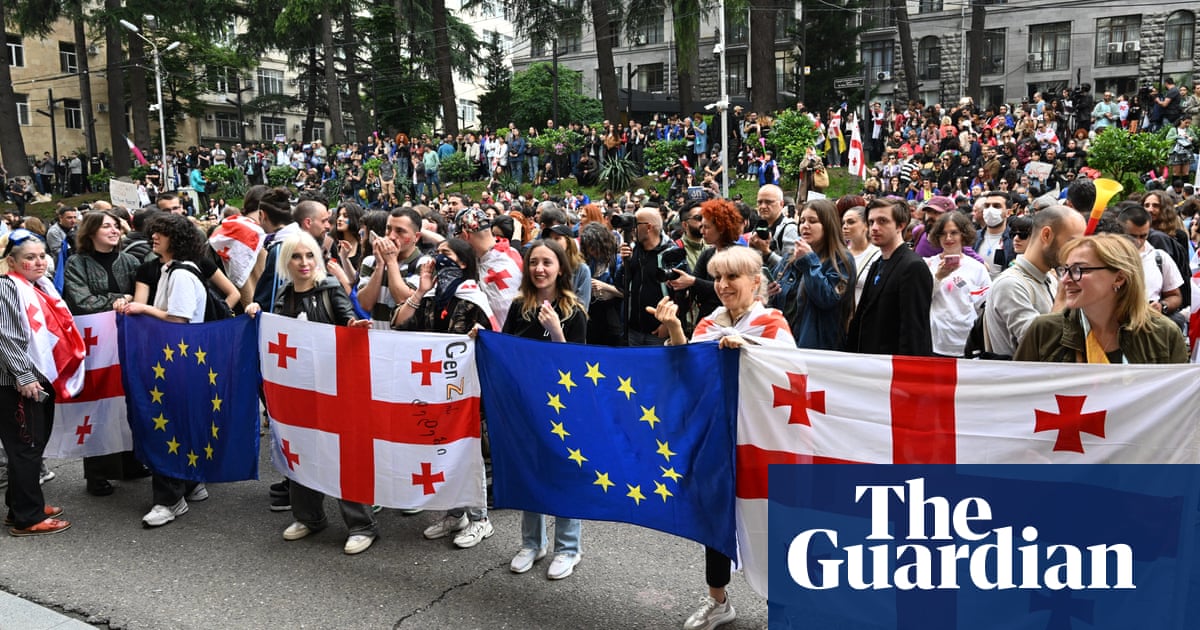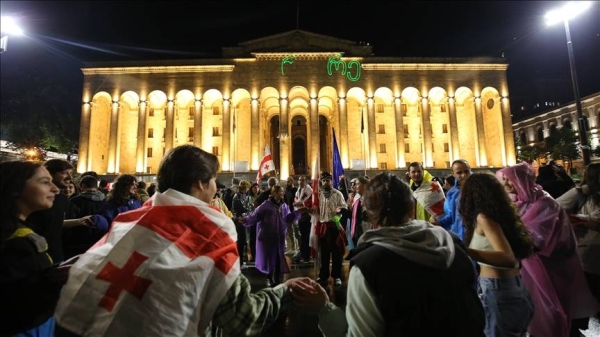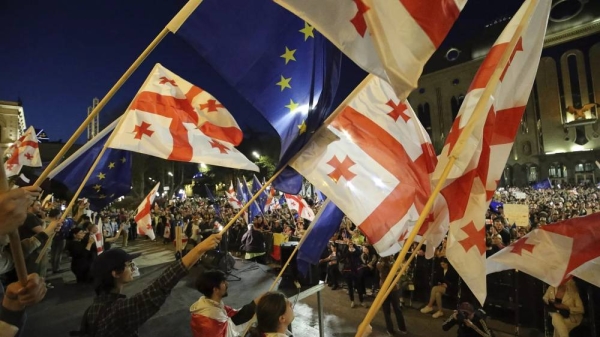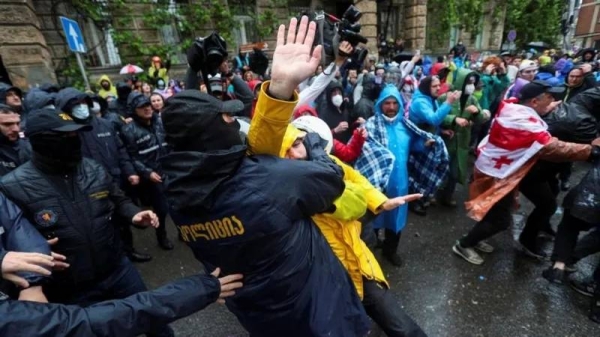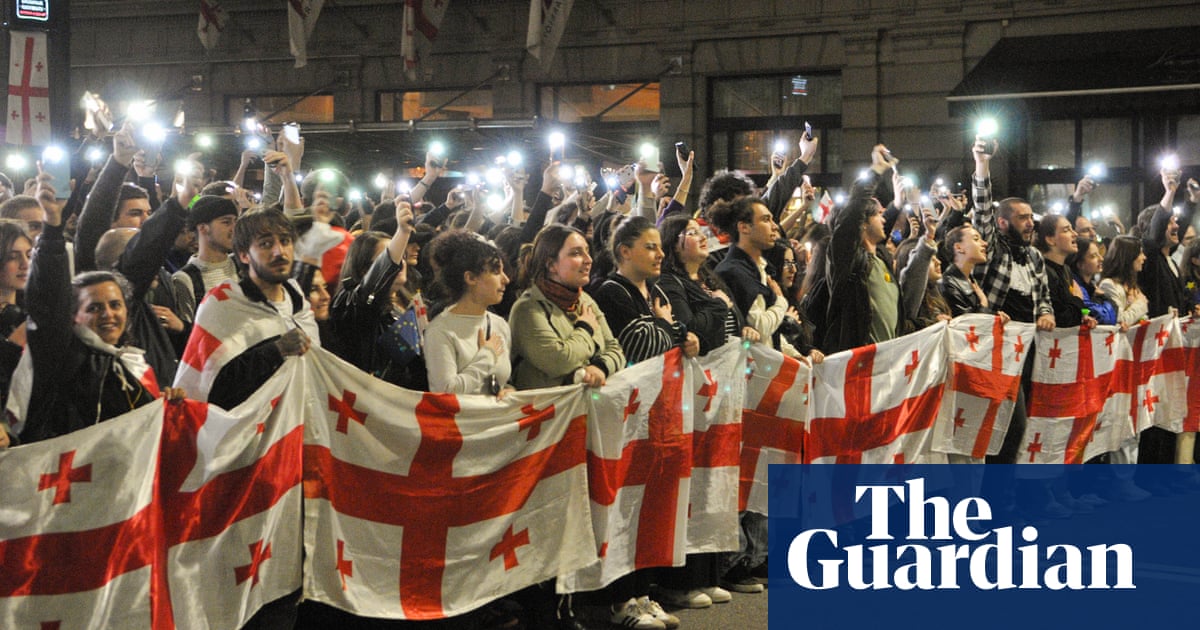
Georgia’s president has vetoed a “foreign agents” bill that has split the country and appealed to the government not to overrule her over a law she said was “Russian in sprit and essence”.
Salome Zourabichvil followed through on her stated intention to use her veto on Saturday although the governing Georgian Dream party has the votes to disregard her intervention.
“Today I vetoed a Russian law,” she said. “This law is Russian in its essence and spirit.
“It contradicts our constitution and all European standards, therefore it represents an obstacle to our European path.”
Under the law on transparency of foreign influence, which passed its third and final reading last Tuesday, civil society organisations and media receiving more than 20% of their revenues from abroad will be obliged to register “organisations serving the interests of a foreign power”.
The legislation has brought hundreds of thousands of people out on to the streets of the capital Tbilisi who accuse the government of trying to smear dissenting voices as traitors.
The legislation is regarded as a copy of a law introduced in Russia in 2012 and which was used as a tool for repressing those with sympathies to the west.
The EU has said that the law will be an obstacle to the country’s accession to the bloc while the US has warned that the legislation and the government’s anti-western rhetoric is turning Georgia into an “adversary” and that it could pull billions in economic and military aid.
Charles Michel, the president of the European Council, said in a statement that the veto offered Georgia’s government a way out of the crisis.
He said: “President Salome Zourabichvil’s veto of the transparency law offers a moment for further reflection. In its current form the law is not in line with EU values and path.
“I call on all politicians and leaders in Georgia to make good use of this window of opportunity and ensure Georgia stays on the European course the population supports. I continue [to] closely monitor developments in Georgia.”
Under the Georgian constitution, a president has two weeks to either sign and promulgate the law or send an argued alternative back to the parliament in the form of “justified remarks.”
The prime minister, Irakli Kobakhidze, has suggested he would open the law to amendments but opposition groups see that as a trap designed to take the energy out of the protests that have swelled Tbilisi’s streets in the last month.
Zourabichvili called a press conference on Saturday to tell reporters that she had effectively vetoed the bill through her proposed changes. “This law must be repealed,” she said.
A failure by parliament to vote on the president’s proposals could effectively kill the bill. The constitution does not stipulate how long MPs can wait to hold a vote.
Parliament can reject the president’s changes and pass the initial bill if it can find 76 out of 150 possible votes, sending it back to the president within three days for signature and promulgation within five days. The governing Georgian Dream party has 90 seats.
If the president does not sign it, the bill passes to the speaker of parliament for their signature. Georgia will hold a general election in October.
Tina Bokuchava, leader of the parliamentary party of the main opposition, the United National Movement, said: “Young people, who have flooded the streets of our cities to protest in recent weeks, will applaud this decision, while also knowing the battle is not yet won.
“A severe contest now lies ahead between those who want Georgia’s future to be at the heart of Europe, and those who would take us back to the darkest days of Russian rule.”




